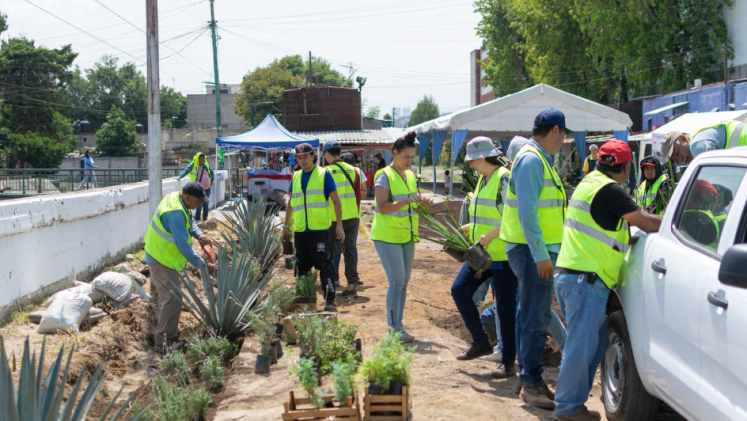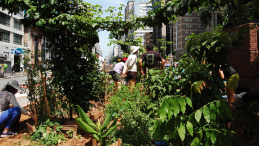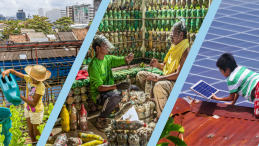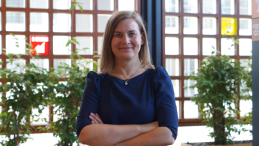An Urban Lab is a public policy approach that has increasingly been used across the world. It consists of regular gatherings of a diverse range of stakeholders who collaborate and exchange knowledge to collectively co-create innovative solutions for complex urban challenges in a way that is participatory, cross-sectoral and inclusive. Urban Labs are the core approach of the Transformative Urban Coalitions (TUC) project. UNU-EHS draws on extensive experience designing, researching and learning from Urban Labs across regions and projects.
Urban labs foster transformative coalitions based on mutual trust
Urban Labs are effective platforms for building coalitions among science, policy, society and business sectors to co-create innovative solutions for urban challenges. Trust is at the core of these actor networks and relationships. Drawing on over four years of hands-on experience with TUC, UNU-EHS provides coalition-building training at various levels, including with the Paris Committee on Capacity-building at the UN Climate Change Conference, helping to connect local climate action and global ambitions.
Flexibility and local adaptation drive Urban Labs’ impact
Urban Labs exist in various forms, such as urban living labs, transition labs and real-world laboratories, for example. They are inherently flexible, adapting their approaches to local priorities and contexts. Many labs in Europe and Asia use technology and digital tools to help communities take part in adapting to climate change. TUC’s Urban Labs in Latin America focus on new governance models and low-cost, easy-to-implement solutions that integrate climate action and development agendas, particularly in low-income and informal settlements. These solutions are predominantly nature-based solutions, which are actions that protect, sustainably manage and restore ecosystems to address societal challenges and at the same time provide benefits for human well-being.
Urban Labs turn knowledge into action for city transformation
A key feature of Urban Labs is bringing together different types of knowledge and expertise, such as scientific research, local expertise and community-lived experiences from the start. Typically, these labs include ways for people to take part in tracking progress and learning, ensuring that projects can adapt during journeys of inclusive urban transformation.
Coalition building, co-design and experimentation can help shift mindsets of Urban Lab participants
Urban Labs serve as more than experimental spaces for technical solutions or neighbourhood upgrades. They act as catalysts for both personal and collective change. By engaging participants in coalition building, co-design and hands-on experimentation, labs strengthen essential soft skills such as empathy, leadership and communication. These collaborative processes contribute to measurable shifts in mindsets among skeptical, bystander and optimist participants. Creative methods, including the use of photography and film, further enrich the experience, helping to cultivate shared values and beliefs that are crucial for sustainable urban futures.
Creating and scaling lab-driven lasting change remains a key challenge
Ensuring the long-term, transformative impact of Urban Labs requires more than just isolated and pilot projects. A strategic approach involves building a diverse set of Urban Lab initiatives in different regions, with strong collaborations from local partners. These partners need to be involved from early design to implementation and scaling. Practical tools, policy innovation and hands-on learning are key to support real change in cities. Connecting lessons across projects helps successful models grow and adapt to new places. However, sustaining and expanding these efforts require long-term funding and support that uphold climate justice and prioritize the needs of the most vulnerable urban dwellers that face the most disproportionate impacts of climate change.





